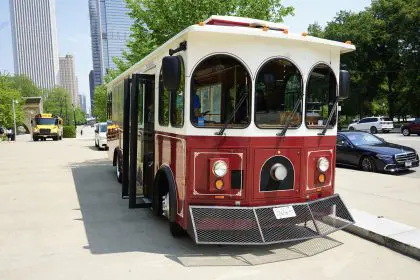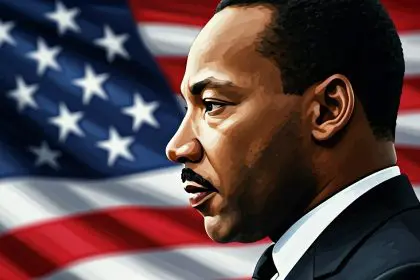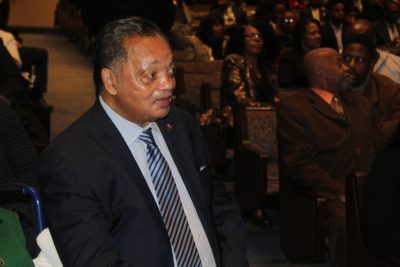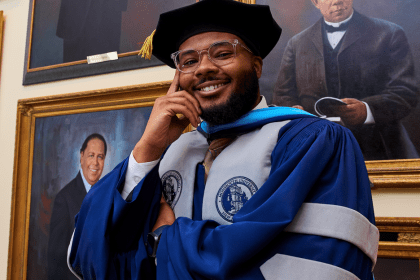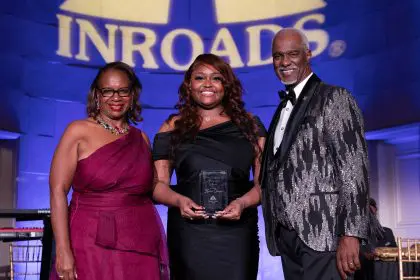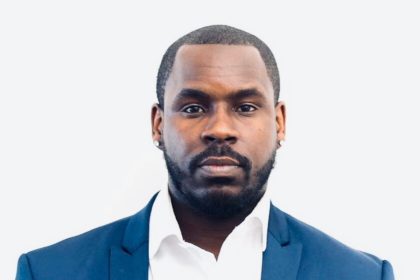
Charles Steele Jr. is president and CEO of the Southern Christian Leadership Conference, which was co-founded by the Rev. Dr. Martin Luther King Jr. A native of Tuscaloosa, Alabama, he served eight years on the City Council and 2 ½ terms in the Alabama state Senate before leaving to helm SCLC from 2004 to 2009. He was asked to return in 2013. Dr. Steele has committed his life to fighting against prejudice, violence, poverty and ignorance. He traverses the country and the globe teaching and applying Dr. King’s principles of nonviolence and conflict resolution. At home in Atlanta, he is constantly pushing for “a new day and a new way” in his day-to-day running of SCLC. A passionate and innovative leader, Dr. Steele raised more than $3 million to construct SCLC’s headquarters building in Atlanta. Under his leadership, SCLC has experienced a rebirth and become a global organization. As such, he has become a tireless international ambassador, carrying the torch of the legacy of Dr. King and his message of nonviolent social change to millions around the world. Being CEO of SCLC isn’t his job, but his calling, Dr. Steele says, to bring peace, security and hope to afflicted people everywhere.
Why is the SCLC important?
There is a law on the books that says we should all be treated equally, but unfortunately, it is not a law that is upheld by all. The events that recently unfolded in Ferguson, Missouri, show the world why SCLC is relevant and still needed. You don’t have to just look to recent events in Ferguson. Racial profiling happens all the time — in every city in this country. Black people in America have had to deal with the lack of equal education for the poor and impoverished, more black males in prison than enrolled in college, more than double the unemployment rate during the tough economic times of recent years, not to mention the dismantling of the Voting Rights Act — a clear attempt at voter suppression. These are just to name a few of the ills that African Americans experience every day. This is why SCLC has established the following initiatives aimed at helping our communities rise above these ills:
Tel-Ed, a technological education degree program that is as part of SCLC’s Poor People’s Campaign. This is to help working folks who are poor, who haven’t had an opportunity to get an education that would lead to a degree or certification because education is not affordable anymore. We are making education affordable. This is about training people to obtain vocational and technological skills and on-the-job training that will help people get jobs after graduation or certification.
The prevention of sex trafficking. Atlanta has become an international hub for sex trafficking. We are letting people know what to look for and how to educate young girls.
Citizenship training so that people can learn about their rights as a citizen.
Voter education and registration.
Not only are you president and CEO of SCLC, but you also are an entrepreneur. Tell us about your entrepreneurial work.
I’m the co-owner of Vanhoose & Steele Funeral Home, my brother [Danny Steele] and me, in Tuscaloosa, Alabama. I was very fortunate to have the opportunity to work under my father in the funeral home business. My father taught me the principles of business and that is relationship is everything. We served our community, and we made sure that we built those relationships so the business could enhance and grow. When you’re doing business and people start coming back to you because you left them with something as a consumer and you put a special touch to it, then you build a relationship. You begin to know Bob, and Bob begins to know you, and then eventually you know his family, his extended family and his friends. Relationships bring about the opportunity of excelling your business. After you build relationships, then you have trust. People trust you to take care of their families in the funeral home business when they come to you. The first cousin to relationship is trust, and that’s how you build a business. I run SCLC like a business. You can’t run it like a church. You have Christian principles, but you run it like a business. Jesus said, “Let me be about my Father’s business.” That’s why I was able to build this (SCLC headquarters) building and pay for it before we moved in. My funeral home has been in business since 1923. Something has been going on with the business in order for it to last and have the longevity of that magnitude.
How have you added business innovation to the SCLC?
I am constantly building relationships with corporate America and bringing about opportunities for their investment into business incubators.
Which business principles resonate with you the most? Please share three entrepreneurial principles and briefly explain why they are most important.
Fairness and equitability. When people come to you, in your mind you have to put yourself in their seat. How can they benefit? And you constantly sell. People don’t realize everything you do in life is selling. Marketability. I love to fundraise. I love to raise money. I love to tell the story. Raising money is telling stories. I love to tell the story that when I was in the funeral home business day to day, my father saw enough in my brother and me that he turned it over to us before he died. He worked all his life building it up, but he said, ‘You don’t get credit for this. I left this for you and your brother. You’ve got to leave this and something else for your children.’ That’s in my mind every day, so I started my consulting firm — Charles Steele & Associates.
What does Charles Steele and Associates do?
The vision that I project to any local or regional business is to go international. If you’re not globalizing your thinking, then you won’t survive.
Speaking of entrepreneurship, you included a session on entrepreneurship featuring businessman and author Kevin Johnson and sponsored by Georgia-Pacific and Koch Industries at SCLC’s annual convention in August. Why did you think it was important to include a session on entrepreneurship?
It is very important to have Georgia-Pacific and Koch Industries to recognize that we have a commitment to entrepreneurship. Entrepreneurship is a necessity for the survival of the African American community. In American society, at least 80 percent of all businesses within this country are small businesses, but there has been a decline within the African-American community with regard to entrepreneurship in the last few years. This is why we need major corporations who are sensitive to the significance of African-American businesses by educating and training black entrepreneurs who are anchoring their communities.
Koch Industries and the Charles Koch Foundation donated $25 million to UNCF, which has established a scholarship program for academically deserving African American students and to help financially strapped HBCUS. What do you think of the Koch donation to UNCF, and why is it important to HBCUs?
That’s easy. I think it’s excellent. Life is all about finding common ground. We have our institutions that are going down every day, every month and every year in terms of the HBCUs. We’ve got to have nontraditional partners to survive. I think it’s great to have any industry to see the necessity to make a contribution of that magnitude to such a significant institution. The HBCUs are only second to the Black church. We’ve got an industry, such as Koch, saying I want to give you a hand up. I think it’s tremendous.
Why are entrepreneurs important to the economies of black communities?
Entrepreneurs are always good for any community. Entrepreneurship is the backbone for every country in the world, so why not create more Black Wall Streets like we had on Auburn Avenue in Atlanta, and in Tulsa, Oklahoma. Self-sufficient businesses create sustainable communities.

